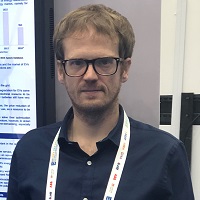
Fellow, IEEE
Prof. Gianfranco Chicco, Politecnico di Torino, Torino, Italy
Gianfranco Chicco holds a Ph.D. in Electrotechnics Engineering and is a Full Professor of Electrical Energy Systems at Politecnico di Torino, Italy. He received the title of Doctor Honoris Causa from the Universities Politehnica of Bucharest and “Gheorghe Asachi” of Iasi (Romania) in 2017 and 2018, respectively. He is a Fellow of the IEEE and the past Chair of the IEEE Italy Section. He is listed in the “Top 2% Scientists” ranking prepared by Stanford University. He is the Scientific Responsible of the research group on Power and Energy Systems at Politecnico di Torino, and the Responsible of the Torino unit of the Italian Consortium ENSIEL. He is the Editor-in-Chief of Sustainable Energy Grids and Networks. He is a past Subject Editor of Energy and a past Editor of the IEEE Transactions on Smart Grid, IEEE Transactions on Sustainable Energy, and IEEE Open Access Journal of Power and Energy. He was the Conference Chair of WESC 2006, IEEE PES ISGT Europe 2017, UPEC 2020, IEEE Eurocon 2023, SEST 2024, and a co-Chair of IEEE SmartGridComm 2024. His research topics include Data Analytics Applied to Smart Grids, Power System Analysis, Distribution System Analysis, Electrical Load Management, Energy Efficiency, Multi-Energy System Operation, and Power Quality.
Speech Title: Management of Household Appliances: Smart Control and Interactions with the User
Abstract: In today’s context of progressively increasing electrification also for the final energy uses, consumers have more opportunities for managing their demand and provide services to the grid or to energy communities. The growing availability of digital services enables sending information to the consumers in real-time and providing commands to some appliances prepared to receive these commands. In parallel to the increasing demand management possibilities, it is necessary to understand the consumers’ preferences to participate in the control of the appliances. This understanding requires asking the consumers to provide information about their usage of the appliances. For example, knowing the starting time of usage of the larger appliances that depend on the users’ action in a household prepares the field to identify the typical patterns of the individual appliances (based on measurements taken from real cases) and form a collective typical load patterns of each individual appliance during time. Based on the information on the individual appliances, the collective typical load pattern is then found from random extraction of the starting times that consider the probability distributions of the timings found from the questionnaire, together with the measured power curve of the corresponding appliances. The presentation will address the aspects indicated above, also recalling some results of the ongoing European project EU-DREAM, aimed at promoting innovation of digital tools and providing enhanced digital services to the consumers.

Prof. Belkacem OULD BOUAMAMA, University of Lille, France
Belkacem OULD BOUAMAMA is full Professor in automatic control at Graduate School of Engineering Polytech Lille (France), where he has been Director of the Research for 15 years. He is in charge of a diagnosis and prognosis research team at the CRIStAL laboratory of the National Center for Scientific Research (CRIStAL, CNRS) in Lille, where his research activities concern Integrated Design for Supervision of System Engineering based on Bond Graph theory. Their industrial applications are mainly, renewable energies and green hydrogen. He has authored and co-authored more 65 peer-reviewed journals, 180 conference papers and 20 books and book chapters. He has given more than 20 invited talks and tutorials and keynotes around the globe. More details are given in https://pro.univ-lille.fr/belkacem-ould-bouamama/
Speech Title: How to use Bond graphs for Multiphysics Modelling and Online Diagnosis of Holistic Green H2 Production?
Abstract: Green hydrogen production undoubtedly the most promising energy vector of the future because it is captured by renewable and inexhaustible sources, such as wind and/or solar energy, and can be stored over the long term in high-pressure cylinders by an electrolyzer to then produce electricity by fuel cells or other valorizations without emitting any pollutants. Improving its energy efficiency, performance, and the implementation of control and safety systems requires the development of accurate mathematical models. This task remains a scientific challenge due to the complexity of this process, mainly due to the occurrence of several nonlinear Multiphysics phenomena (electrical, electro-chemical, mechanical, thermal…). The plenary presentation exposes a part of the scientific results developed in the framework of academic and applicative projects. It will be shown how a powerful graphical bond graph tool as unified language and applied to real green H2 production platform, can be used not only for modelling using specific software’s but also improving its safety mixing physics and IA based methods.

Prof. Raffaele Carli, Polytechnic of Bari, Italy
Raffaele Carli received his Laurea degree in Electronic Engineering with honours in 2002 and his Ph.D. in Electrical and Information Engineering in 2016, both from Politecnico di Bari, Italy. From 2003 to 2004, he was a Reserve Officer with Italian Navy. From 2004 to 2012, he worked as System and Control Engineer and Technical Manager for a multinational company in the space and defense sector.
Currently, he is an Associate Professor in Systems and Control Engineering at Politecnico di Bari, where he is the technical lead for the Decision and Control Laboratory (http://dclab.poliba.it/), coordinated by prof. Mariagrazia Dotoli, within the Department of Electric and Information Engineering . He has held national qualifications as a Full Professor since 2023. Since 2022, he has served as Vice-Coordinator of the National PhD program in Autonomous Systems (http://dausy.poliba.it/phd/).
He serves on the editorial board of IEEE journals as an Associate Editor for IEEE Transactions on Automation Science and Engineering (awarded Best Associate Editor in 2023 and 2024) and IEEE Transactions on Systems, Man, and Cybernetics. He is also an active member of the conference editorial boards of various events sponsored by IFAC and IEEE, including those sponsored by the IEEE Control Systems Society (CSS), IEEE Robotics and Automation Society (RAS), and IEEE Systems, Man, and Cybernetics Society (SMCS). His organizational roles include positions on the committees of several IEEE conferences (IEEE CASE 2017, CASE 2020, SMC 2023, CASE 2024, ICIEA 2026). He also served as the General Co-chair of 7th International Conference on Renewable Energy and Conservation (ICREC 2022) and General Chair of the 2025 IFAC Workshop on Smart Energy Systems for Efficient and Sustainable Smart Grids and Smart Cities. He currently is General Co-chair of the IEEE International Congress on Smart Agriculture and Sustainable Systems Engineering (SmartAgri&SuSY 2025), December 5-9, Marrakech, Morocco.
An IEEE Senior Member since 2022, he currently serves as the Mentorship Subcommittee Chair within the IEEE SMCS for the 2023-2025 term and the Secretary of the IEEE Italy Section Chapter CS23 of the CSS for the 2025-2026 term.
He is an author of over 130 printed international publications (Google Scholar profile: https://scholar.google.it/citations?user=OvXT8Y0AAAAJ&hl=en). His research focuses on developing decision and control techniques for modeling, optimizing, managing, and controlling complex, large-scale systems, particularly in smart frameworks such as industry, logistics, and energy. He received the 2024 IEEE Italy Section SMCS Chapter Award for Excellence of Early Career Researchers.
For additional information, visit: http://dclab.poliba.it/people/raffaele-carli/
Speech Title: Control Techniques for Energy-Efficient and Sustainable Agriculture: A Focus on Vertical Farms
Abstract: The growing global demand for sustainable food production and the scarcity of arable land are accelerating the adoption of controlled-environment agriculture, with vertical farms (VFs) emerging as an innovative solution. However, their high energy consumption poses significant challenges to both sustainability and economic feasibility. This talk presents advanced decision and control techniques designed to optimize crop growth conditions while reducing energy costs and enabling participation in demand response programs. In particular, it introduces a novel control framework integrating vertical farm operation with dynamic energy market participation through centralized and decentralized receding horizon control strategies. Experimental and simulation results highlight the benefits in terms of cost reduction, scalability, and environmental sustainability, demonstrating the potential of control-based optimization to enable efficient and resilient agricultural systems.

Prof. João Soares, Polytechnic of Porto, Portugal
Prof. João Soares is a distinguished senior research at GECAD (ISEP/P.Porto), holding a PhD in Electrical and Computer Engineering from UTAD, which he earned in 2017. Since completing his doctorate, he has demonstrated exceptional leadership in securing competitive funding for numerous high-impact research initiatives.
Prof. Soares has cultivated extensive international collaborations, particularly with São Paulo State University (UNESP) and Centrale Lille, where his work has centered on the operation and planning of electrical energy systems integrating renewable generation and electric vehicles using artificial intelligence. His research partnerships extend to prominent institutions such as the Honda Research Institute Europe, fostering strong ties between academia and private industry. Additionally, he has collaborated with leading universities in India, where he has actively contributed to research initiatives and academic competitions. Since 2019, his role as a visiting professor at a prestigious Centrale Lille in France has further enriched his global research and teaching activitie.
With a remarkable track record in project leadership, he has participated in over 30 national and international research projects, serving as Principal Investigator in nine of them, including initiatives under the Horizon/H2020 framework. His leadership has driven significant advancements in energy resource management, particularly in the areas of local energy markets and electric vehicle integration. Recently, he secured five private contracts for R&D projects focused on energy communities and electric mobility, underscoring his ability to bridge academic research with industry needs.
Prof. Soares has authored over 250 scientific publications with over 6,000 citations and achieving an h-index of 42. His contributions to the scientific community extend beyond research; he has taken on editorial responsibilities, co-leading 16 special issues in high-impact journals and reviewing over 350 manuscripts.
As an educator, he has delivered courses on cutting-edge topics such as AI, electric mobility and smart grids at ISEP, UNESP, and Centrale Lille. Over the past five years, he mentored a team of several researchers and supervised a diverse group of students, including nine PhD candidates and 23 MSc students, many of whom have gone on to successful careers in academia and industry.
He has been recognized with numerous awards for his contributions to the field. He currently serves as Chair of the IEEE ISATC Task Force on Computational Intelligence for the Energy Domain and as Secretary of the IEEE PES Intelligent Systems Subcommittee. His leadership extends to organizing over 30 international events, including workshops and competitions, and he is frequently invited to deliver plenary and keynote speeches at prominent conferences worldwide.
More information available on https://orcid.org/0000-0002-4172-4502
Speech Title: Scalable and Explainable AI-driven Optimization for Complex Energy Problems
Abstract: Modern energy systems present large-scale, nonlinear challenges and operate under high uncertainty, making classical optimization approaches insufficient due to scalability and runtime constraints. This talk explores how AI, specifically, Computational Intelligence and Evolutionary Computation techniques, delivers robust, high-quality solutions even with limited time or data. Real-world case studies highlight the value of hybrid solutions and the impact of fair, statistically-sound comparisons. The keynote highlights how to choose, configure, and responsibly deploy AI-powered solutions in modern energy settings, supported by guidelines and freely available resources for experimentation and deployment.